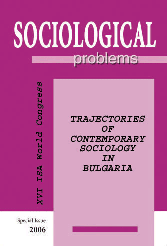Restructuring of Rural Areas in Bulgaria: From Old Disparities to New Development Challenges
Restructuring of Rural Areas in Bulgaria: From Old Disparities to New Development Challenges
Author(s): Mariana DraganovaSubject(s): Social Sciences
Published by: Институт по философия и социология при БАН
Summary/Abstract: In the course of the transition, the political, economic and social transformations have led to profound changes in Bulgaria’s rural regions. After about ten years of rambling agricultural policy and lack of rural policy of the state, the EU integrated rural development approach has been adopted in 2000–2006 National Agriculture and Rural Development Plan (NARDP) as a part of Bulgaria’s pre-accession strategy. According to it the Plan totally reversed the vision of rurality – ‘Rural areas’ and ‘Less developed rural areas’ were defined, and the Plan perceived sustainable development of rural areas as a main priority of the rural policy. It aimed at overcoming the existent development disparities observed not only between rural and urban regions but also within rural areas through improvement of the quality of life of rural people and living conditions in rural communities. The paper focuses on some rural development policy aspects of the restructuring of rural areas in Bulgaria. The paper illustrates current development constraints in some components of the daily life of people in small and peripheral rural communities indicated by the various representatives of local actors, and how these constraints clash with the available development potentials. The paper is based on the in-depth study carried out in two Bulgarian rural regions – a study complementary to the World Bank quantitative countrywide survey.
Journal: Социологически проблеми
- Issue Year: 38/2006
- Issue No: Special
- Page Range: 170-189
- Page Count: 20
- Language: English
- Content File-PDF

